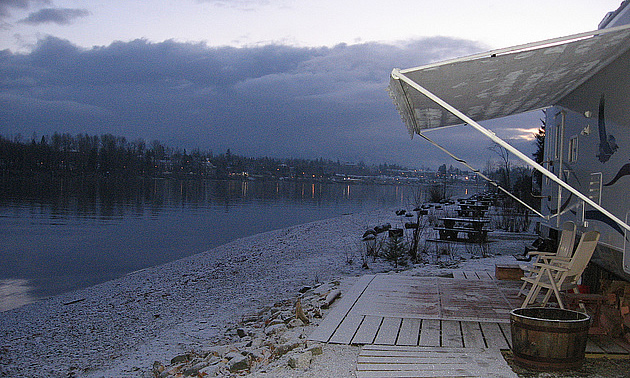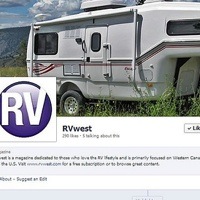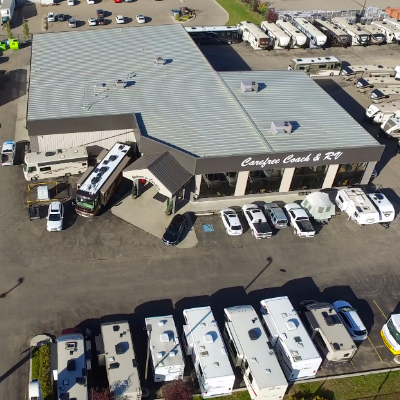Prepare for winter camping
Don't let the cold weather stop you from enjoying your RV

Yes, the weather has changed and it feels like snow might be arriving at any time, but that doesn’t mean RVers have to quit living in their RV or head south to a warmer climate. Probably the main concerns during the winter are staying warm and being able to use the water and sewer hook-ups without having everything freeze up solid, including yourself.
Having a secondary heat source is important. By only using the furnace your propane supply will quickly be used up—and when the tank is empty and your furnace is no longer working, it can get particularly uncomfortable. Your teeth will soon be chattering. It seems as if that only happens in the middle of the night when you can’t do anything about it and no amount of blankets will keep you warm. There are many different types of safe and economical heaters on the market that will do the job quite well, so visit your favourite hardware store or ask your friends what they recommend.
Moisture or condensation is really hard to avoid so a dehumidifier is a good idea. Check for drafts or problem areas and use insulation or tape where possible and keep a window or vent slightly open for ventilation, which helps reduce the moisture.
Skirting around the RV will help reduce drafts and keep you warmer. If you’re parked in one spot and the park owners will let you, put a skirting around your unit—whether it is vinyl or made of lumber. Not all parks will allow, this but not having skirting increases the chances that the holding tanks are going to freeze and may do permanent damage that could cost you a lot of money.
Once you have the skirting in place you could conceivably put insulation in the space below the RV—a must is a heat lamp placed near your tanks for added protection. There are two reasons not to use an electric heater under your RV—the chance of starting a fire, and the cost of the electricity will be extremely high.
Waterworks
Close the valves on your gray and black water tanks until you’re ready to dump them. This was a lesson I had to be taught many years ago when the ice started building up in the hose until it became one solid piece that was not fun to thaw. Have the drainage hose placed on a very steep angle so water doesn’t sit in it.
Insulate all pipes—both interior and exterior ones—and strategically place light bulbs in cupboards or closets. This will really help keep the threat of freezing away. Heat tape wrapped around the exterior water hose is an absolute must, and make sure it covers both the outside water tap and the inlet into your RV. Cover this with insulation and wrap it up nice and tight. Don’t insulate the sensor though, because you want it exposed to the cold so it will run all the time.
When possible don’t use your fresh water tank, instead use the park’s water system—this is just one more thing that could go wrong and it’s easier to prevent problems than try to fix them. By keeping cupboard and closet doors open the heat will also assist with keeping the interior pipes warm. Plus you won’t get a cold draft hit you every time you reach for something inside your cupboard. When you go around your RV to plug up any problem areas, don’t forget to put insulation in the roof vents.
Heavy socks or slippers will help keep your feet warm, and I find a fleece jacket gives me that bit of added protection when the air inside the RV is cool. Although we are not currently living in an RV during the winter, I have spent many winters warm and snuggly in an RV. By learning from our mistakes, each year it got easier. Curled up on the chesterfield or chair in a nice warm blanket and watching out the window as the snow is falling can be a relaxing and cozy way to spend an afternoon.








